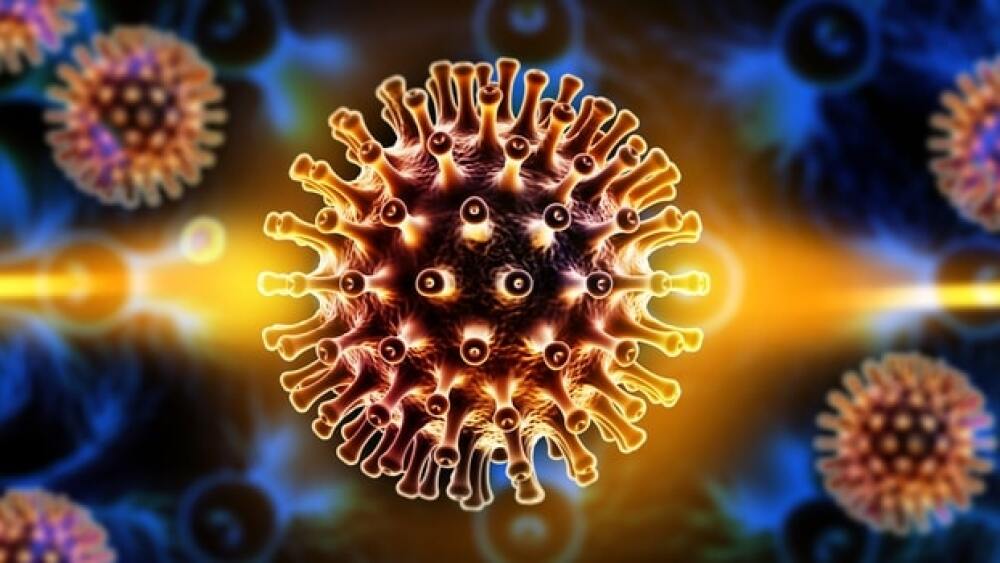American Gene Technologies (AGT), based in Rockville, Maryland, received the go-ahead from the U.S. Food and Drug Administration (FDA) to begin a Phase I clinical trial of AGT103-T, a gene therapy, to eliminate HIV from infected individuals.
HIV therapies, typically cocktails of antiviral drugs, have proven to be very successful in controlling HIV/AIDS. However, they are not a “cure,” which is a very lofty goal. American Gene Technologies (AGT), based in Rockville, Maryland, received the go-ahead from the U.S. Food and Drug Administration (FDA) to begin a Phase I clinical trial of AGT103-T, a gene therapy, to eliminate HIV from infected individuals.
AGT103-T is developed from blood cells using an 11-day process that increased T-cells, which fight HIV, but uses a lentiviral vector-based gene therapy. In preclinical studies, it has demonstrated the ability to clear itself of HIV when challenged with the virus and HIVI-infected human cells. This work was done in collaboration with researchers from the National Institute of Allergy and Infectious Disease (NIAID). NIAID, under a Collaborative Research Agreement, characterized CD4 T-cells in AGT’s AGT103-T cell product, as well as a better understanding of its mechanisms of action.
The company recently published an article about the preclinical research in the journal Molecular Therapy.
In the preclinical studies, AGT separated white blood cells from the HIV-positive patients’ blood using leukapheresis. They then expanded HIV-specific CD4 T-cells, then inserted a gene into those cells using the AGT103 lentivirus. The gene downregulates the CCR5 receptor, which disrupts the synthesis of proteins HIV needs to replicate. The modified cells are then infused back into the patient, where they remain in the body.
Interestingly, this is akin to what He Jiankui, the Chinese researcher who used CRISPR-Cas9 gene editing to alter the DNA of embryos for seven couples in 2018, and was met with enormous controversy. He Jiankui used CRISPR to disable the CCR5 gene, which creates a protein that allows HIV to enter a cell. As readers may remember, a set of twins was born from He Jiankui’s procedures, but it led to a global moratorium against this kind of gene editing. He Jiankui was eventually sentenced to three years in prison in China for “illegal medical practice,” with two colleagues receiving shorter sentences. He Jiankui was also fined the U.S. equivalent of $430,000.
To be perfectly clear, there is nothing similarly controversial about what AGT is doing, but rather the same gene is involved.
Other research has been conducted to “cure” HIV using stem cell transplants. The first was in the so-called “Berlin Patient,” Timothy Ray Brown, who was cured in 2007. In 2019, another, dubbed the “London Patient” was similarly treated with stem cell transplants from donors carrying a rare genetic mutation called CCR5-delta 32. This mutation makes the patients resistant to HIV.
In both of the patients, they were suffering from blood cancers—the London Patient with advanced Hodgkin’s lymphoma and the Berlin Patient with acute myeloid leukemia (AML)—which made them appropriate recipients of stem cell transplants anyway, with the use of the mutated stem cells an added experimental benefit.
Jeff Galvin, founder and chief executive officer of AGT, stated, “I am confident AGT103-T will be an important step towards an eventual cure for HIV.”
The company’s chief science officer, David Pauza, echoed the sentiment, saying, “This is momentous news that we have FDA approval to launch Phase I and conduct our first human trials. We are beyond excited to reach this milestone. This brings us closer to our goal of transforming lives with genetic medicines. Based on our successful commercial-scale product manufacturing runs and features of the product observed in our labs, this therapy has a high potential to be effective.”
Approximately 37.9 million people around the world are living with HIV/AIDS, with 1.2 million people in the US alone. Antiviral drugs are able to control the replication of the virus, but the virus still remains in the body and if the patient stops taking the drugs, will resurge.
AGT103-T is focused on repairing the key immune system damage caused by HIV. HIV kills T helper cells required for immunity to HIV. This therapy is designed to repair the T helper cell defect, which would allow the immune system, rather than to be infected by the HIV virus, fight and clear the HIV virus. They hope it will decrease or eliminate the need for lifelong antiretroviral therapy.
The Phase I trial will be conducted in the Baltimore and Washington DC area, specifically beginning at Washington Health Institute, University of Maryland, Institute of Human Virology and Georgetown University. It is expected to begin enrollment in September 2020, with initial data by the end of this year.
The trial will measure key biomarkers and explore surrogate markers of efficacy. The therapy should be a single dose.
For patients to be eligible for the trial, they must have taken antiretroviral therapy (ART) for one to three years, must have undetectable virus levels, must have a stable CD4 T-cell count above 500 cells/mm3, and may not have AIDS-defining conditions.





